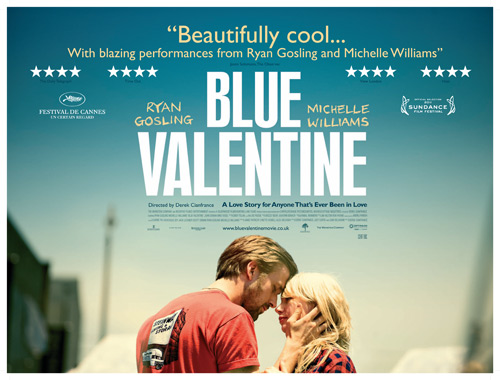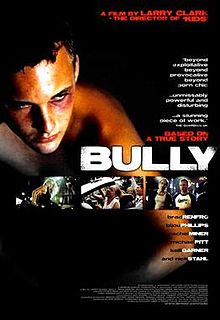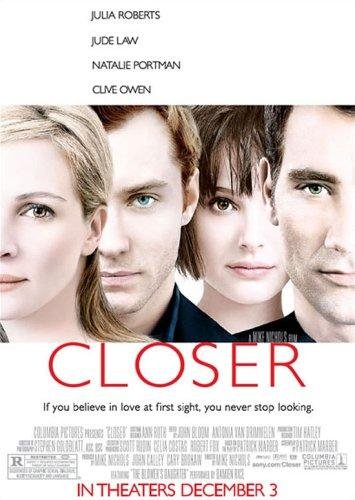I’ve seen three movies lately that were very hard work – extremely gruelling and painful to watch, and certainly not enjoyable. I’m darned sure everyone reading this will be above to come up with a few of their own – in fact, here is a list of some more! Some achieve the distinction by virtue of their length of unmitigated woe and misery; some by confronting issues people would simply choose not to go; and others for their sheer lack of anything remotely sympathetic or hopeful as they linger on like a horse that should be shot.
It’s true that you may well admire them for their qualities, but enjoyment is usually a bridge too far. Many of the audience, including people of intelligence and perspicacity, may find these movies intensely dislikable. In fact, all three of the films I am referring to were brilliantly acted, supremely crafted and remarkable in their own right, just a feat of endurance to get through to the end. Fact is that well-made movies make it all the worse: you can walk out of a bad and boring movie, but a genuinely difficult film that touches a raw nerve will haunt you for a long time, well after you’ve left the theatre.
There are many movies that fall into this category, though note that they don’t have to be disturbing to be difficult to watch. We have all become de-tuned to on-screen violence and horror, but strangely emotional suffering is far, far harder to watch. Seems strange, but people cracking up in the process of credible acting is more difficult to endure, not least because it happens to us all at one time or other, where violence and mutilation, no matter how well done, is more like comic-strip cartoonish brutality. You can associate with these movies, and that’s what makes them so painful and/or heavy going to to watch.
While there is undoubtedly a section of the cinema-going audience that wants purely light-hearted happy-happy entertainment without complexity, the inevitability is that some deep and dark subjects will also be covered in the movies without any form of gloss. The thing is that movies which are dark, tragic in the classical Greek sense and/or portray subtle shades of emotion are ultimately far more rewarding than one-dimensional movies the Studio bosses think we want on tap.
Give me an intelligent movie which demands my full attention and longevity any day in preference to ladle-fulls of syrupy schmaltz, but even so the onus is on makers of the toughest movies to watch to edit with care and have a clearly-defined purpose behind every scene. In particular, to know when to cut and leave it be rather than prolonging the suffering of the audience, quite apart from the characters. There may be good reasons why it is necessary to prolong a scene, but that decision should not be taken lightly.
Of course, times and morals have moved on from when A Clockwork Orange was withdrawn by Stanley Kubrick after widespread public dismay over the movie. Even today some scenes are very hard to watch – it is unmistakably brutal, and the fact that it is not merely physical but mental torture by and to the character Alex makes it all the tougher to endure. But of itself, that did not warrant the reaction when the movie came out; what it said was that society was simply not ready for the film, and that both Anthony Burgess and Kubrick were years ahead of their time.
Chances are that somebody somewhere is making a film that will push back the boundaries and cover a subject so raw that we find it almost impossible to watch. Maybe not the box office smash hit of the year but one that will be a talking point and will open a keen debate, maybe for years to come.
***
These were the three in question:
Blue Valentine: the slow and excruciating tale of a relationship breaking up before your very eyes. Michelle Williams and Ryan Gosling lead and substantially improves their roles in lengthy scenes that go nowhere. The Guardian said this:
Derek Cianfrance’s film is a sombre, painful portrait of a toxic marriage, often touching and sometimes moving, though occasionally contrived and self-conscious in its effects. There are powerfully committed performances here from its stars and executive producers, Ryan Gosling and Michelle Williams; this is a movie which puts its audience in close, sometimes stifling proximity to a dying relationship, and I occasionally felt that it resembled, just a little, an indulgent actors’ project.
Bully: Larry Clark‘s movie enacts the real life murder of a teenage boy by his friends and the events that led up to the murder, and covering the emotional, physical and sexual abused that led to the decision that he needed to die. In the process, American teen culture is forensically dissected in prurient detail. Roger Ebert said this:
It may be that “Bully” helps to explain the high school shootings. We sense the chilling disconnect between an action and its consequences, the availability of firearms, the buildup of teenage resentments and hatreds, the moral vacuum, the way they can talk themselves into doing unthinkable things, and above all the need to talk about it. (So many high school shooters leave diaries and Web pages, and tell their friends what they plan to do.) Yes, Bobby Kent is a bully (and one of the most loathsome characters I’ve seen in a movie). But he dies not for his sins, but because his killers are so bored and adrift, and have such uncertain ideas of themselves.
Larry Clark is obviously obsessed by the culture of floating, unplugged teenagers. Sometimes his camera seems too willing to watch during the scenes of nudity and sex, and there is one particular shot that seems shameless in its voyeurism (you’ll know the one). But it’s this very drive that fuels his films. If the director doesn’t have a strong personal feeling about material like this, he shouldn’t be making movies about it.
Clark is not some objectified, outside adult observer making an after-school special, but an artist who has made a leap into this teenage mindscape. Some critics have attacked him as a dirty old man with a suspect relationship to his material; if this film had been directed by a 25-year-old, some of these same critics might be hailing it. I believe “Bully” is a masterpiece on its own terms, a frightening indictment of a society that offers absolutely nothing to some of its children–and an indictment of the children, who lack the imagination and courage to try to escape. Bobby and his killers deserve one another.
Closer: Is the late Mike Nichols‘s adaptation of Patrick Marber‘s play of the same name, the tale of a series of car crash relationships involving four people based heavily on Mozart’s tragic opera Cosi fan Tutti. Hard going indeed as the petty jealousies and desires are played out to inevitable failure by four largely unlikeable characters, brilliantly acted by Law, Roberts, Portman and Owen. BBC reviewer Stella Papamichael said this:
With its central theme of sexual jealousy and a willingness to probe the sometimes seedy and pathetic nature of desire – best exemplified in a scene where Portman strips for Owen – this is demanding stuff….All the performances are strong, with Portman especially fearless and Owen simply fearsome as a man driven by his base instincts. Disappointingly Nichols’ clinical approach fails to elicit deep empathy for any of these characters whose foibles are intended to reflect us all. Like them, Closer frustratingly stops short of true intimacy.




